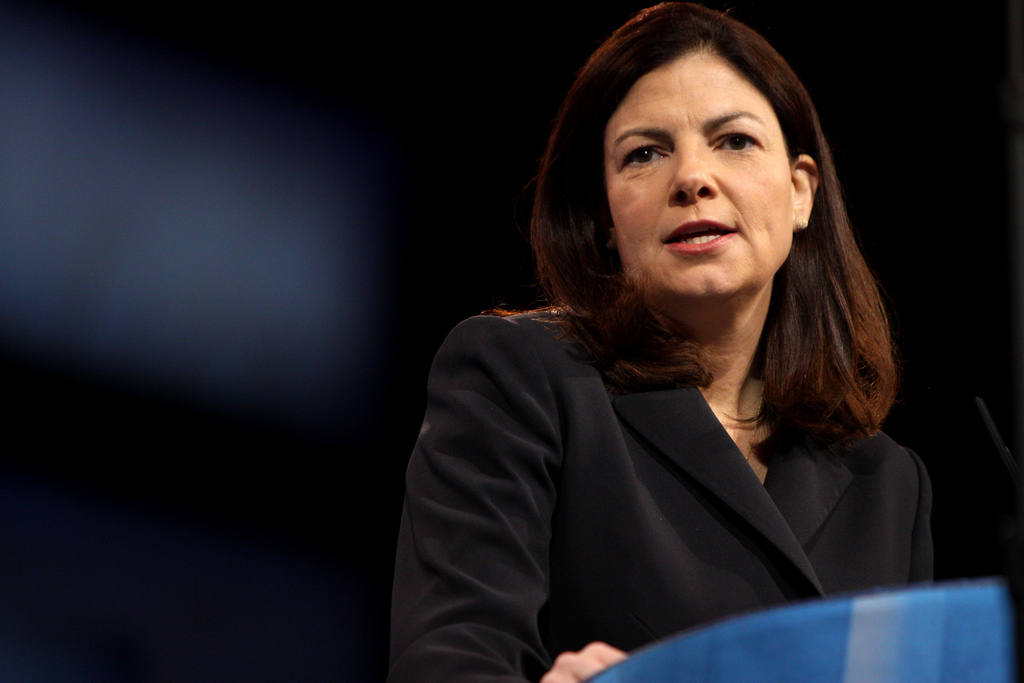Arizona establishes second U.S. state-level Bitcoin reserve, joining national shift toward cryptocurrency reserves
05/13/2025 / By Willow Tohi

- Governor Katie Hobbs signed HB 2749, creating the Arizona Bitcoin and Digital Assets Reserve, the second state-level crypto reserve in the U.S. after New Hampshire. The law uses unclaimed property profits to invest in Bitcoin and digital assets, diversifying state funds and reducing reliance on fiat currency.
- Arizona joins states like Texas (which launched a gold depository) in adopting policies to hedge against inflation and economic instability. The move aligns with former President Trump’s federal Bitcoin reserve executive order, reflecting skepticism toward central bank policies.
- The bill allocates profits from unclaimed property (e.g., interest, staking rewards) to digital assets without direct taxpayer funding. It enforces diversification rules, mandates U.S.-regulated custody and allows Bitcoin redemption for lost assets to counter currency devaluation.
- The bill passed with Republican support but faced Democratic skepticism. Trump’s crypto policies and pressure from GOP legislators like Senator Wendy Rogers pushed Hobbs to sign, despite concerns over Bitcoin’s volatility.
- Arizona’s reserve merges traditional “sound money” principles with modern crypto, avoiding taxpayer costs while hedging against inflation. The Satoshi Action Fund’s advocacy signals growing momentum for similar laws nationwide, framing Bitcoin as a stability tool in uncertain economies.
On May 9, Governor Katie Hobbs signed Arizona’s House Bill 2749 into law, establishing the Arizona Bitcoin and Digital Assets Reserve — the second state-level cryptocurrency reserve in the U.S. following New Hampshire’s 2024 initiative. The policy redirects unclaimed property profits into Bitcoin and other digital assets, aiming to diversify state funds, combat inflation and reduce reliance on traditional fiat currency. This move aligns Arizona with a growing trend among states to embrace sound money principles, echoing President Donald Trump’s executive order creating a federal Bitcoin reserve and reflecting broader skepticism toward central bank policies in an era of economic uncertainty.
The rise of sound money policies: A shift from fiat to digital gold
Arizona’s decision is part of a nationwide push for “sound money,” a term gaining traction as states seek alternatives to fiat currency amid concerns over inflation and economic manipulation. Texas recently passed legislation creating a state gold depository, highlighted by Governor Greg Abbott as a means to secure reserves while reducing costs tied to external storage. These efforts harken back to historical moments when governments turned to tangible assets like gold to stabilize value, such as the 19th-century gold standard.
President Trump’s March executive order to establish a federal Bitcoin reserve further galvanized state-level action, positioning digital assets as a modern counterpart to gold. Critics argue Bitcoin’s volatility undermines its stability, but proponents, including legislative sponsor Representative Jeff Weninger (R-Chandler), counter that its growth trajectory justifies investment: “Digital assets aren’t the future—they’re the present.”
Key provisions and legislative momentum
HB 2749’s provisions underscore a measured approach. The law mandates that profits from unclaimed property—typically held in state treasuries—be allocated to digital assets, funded by interest, staking rewards and airdrops from abandoned cryptocurrency wallets. This structure avoids taxing citizens directly, a selling point emphasized by Satoshi Action Fund CEO Dennis Porter, who called the bill a “win for fiscal responsibility.”
The reserve’s diversification rules prevent Bitcoin from dominating Arizona’s portfolio, ensuring it remains a strategic supplement. Custody must be held in U.S.-regulated entities, addressing safety concerns. Rep. Weninger, who drove the bill through bipartisan votes, emphasized modern financial infrastructure: “We’ve built a structure that protects property rights and accounts for a new category of value in the economy.”
Cryptocurrency exchange Coinbase provided pivotal testimony, demystifying technical barriers for lawmakers. The legislation also allows Bitcoin redemption in lost assets, returning funds in BTC rather than dollars—a detail the Satoshi Action Fund framed as a safeguard against further devaluation.
Political dynamics and the national influence of Trump’s agenda
Arizona’s path to the bill was marked by partisan divides but fueled by Trump’s national agenda. In April, the Legislature passed two crypto bills mirroring Trump’s executive order, authorizing 10% of state assets for digital investments. The Senate and House, led by Republicans, advanced the measures with little Democratic support, placing pressure on Hobbs to sign. Senator Wendy Rogers, a primary sponsor, urged Hobbs to act, citing crypto’s appeal to younger voters and independents.
However, skepticism persists. Donald Trump’s controversial inclusion of lesser-known cryptocurrencies in his federal reserve stirred unease, with critics arguing it undermined Bitcoin’s reputation as a “digital gold.” Arizona’s focus on top-tier assets, unlike Trump’s broader cryptocurrency mix, reflects a more cautious calculus by lawmakers. Yet, Rogers dismissed volatility concerns, citing Bitcoin’s historical appreciation: “It always increases in value if you zoom out.”
Democratic Governor Hobbs faced a tough decision, weighing crypto’s unpredictability against its potential as an inflation hedge. The delayed signing until May 9 hinted at her careful scrutiny. Ultimately, bipartisan support and a strategy avoiding taxpayer burdens likely swayed her approval.
A pioneering step in the digital reserve movement
Arizona’s Bitcoin reserve underscores a seismic shift in state fiscal policy, merging traditionalist “sound money” ideals with cutting-edge digital assets. By leveraging overlooked funds, the move bolsters financial resilience without imposing taxes. As more states, inspired by Texas and New Hampshire, adopt similar measures, the policy era of decentralized reserves may redefine how governments safeguard wealth. In a world where trust in fiat currencies wavers, Arizona’s gamble reflects not just innovation, but a testament to the enduring allure of stability in an unstable economy.
Satoshi Action Fund’s influence — eight laws passed and over 20 in progress — provides a blueprint for future legislative battles. The stage is set for a national debate: Is Bitcoin the next gold, or a risky distraction? For Arizona, the answer, for now, is clear.
Sources for this article include:
Submit a correction >>
Tagged Under:
Arizona, big government, bitcoin, bitcoin reserve, Bubble, crypto cult, cryptocurrency, digital gold, fiat currency, market crash, money supply, pensions, progress, risk, Trump
This article may contain statements that reflect the opinion of the author
RECENT NEWS & ARTICLES
COPYRIGHT © 2018 CRYPTOCULT.NEWS
All content posted on this site is protected under Free Speech. CryptoCult.news is not responsible for content written by contributing authors. The information on this site is provided for educational and entertainment purposes only. It is not intended as a substitute for professional advice of any kind. CryptoCult.news assumes no responsibility for the use or misuse of this material. All trademarks, registered trademarks and service marks mentioned on this site are the property of their respective owners.


















